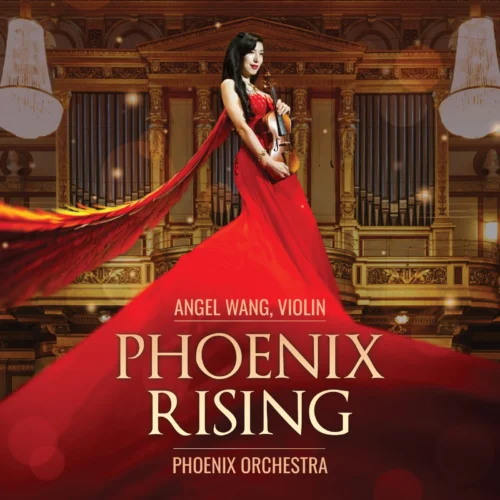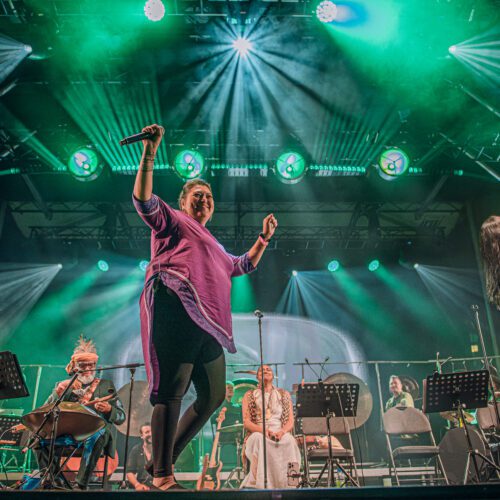Chinese Romanticism has captured the hearts of Westerners ever since He Zhanhao and Chen Gang premiered their celebrated 1959 violin concerto ‘Butterfly Lovers’. This concerto corresponds to the idea that non-Chinese may have of the harmonies, rhythms and atmospheres of music from the Middle Kingdom. Listening to it, like watching a Shen Yun choreography, it’s easy to imagine the lush valleys, towering mountains, humid rice paddies, countless pagodas, peasants’ pointed hats and the architectural masterpieces of this civilisation, such as the Great Wall and the Forbidden City. It’s an immense masterpiece, and even if it’s full of clichés, they are constructed with such verve and energy, with such endearing melodies, that you invariably fall under its spell.
The version presented here is an arrangement for chamber orchestra by Phoenix Orchestra conductor Claudio Vena. The reduction betrays no lack of the original version’s rich tapestry of colours, but what is a little lacking, and this is probably the fault of the recording, is the thinness of the orchestra’s muscles in certain bursts of cymbals, rolling timpani or certain wind passages. The lack of roundness, aided by a very clear accentuation of the luminosity of the solo violin, ends up making us regret the fully symphonic version. Not all the time, far from it, but enough to make you think about it.
The solo violin, on the other hand, is a different matter. Canadian Angel Wang is an artist with an ultra-precise, infallible technique. Her sound is as clear as sparkling crystal. As a result, the violin twirls like a mischievous sunbeam above the orchestral framework.
Six traditional pieces (five Chinese and one Mongolian) continue the journey with their simple melodies, beautifully arranged once again by Claudio Vena for this ensemble, and played with grace and tenderness by Ms Wang. The same problem of sound recording is also evident here in the case of the orchestra, which nevertheless plays with admirable technical and rhythmic precision.
The programme ends with the album’s title piece, Phoenix Rising by Canadian Alice Ping Yee Ho, which I have already mentioned in another article.
READ MY REVIEW OF ALICE PING YEE HO’S OPERA CHINATOWN
The transition between this contemporary work and the rest of the programme is a smooth one, with an introduction by the solo violin and impressionistic playing by the orchestra that are quite reminiscent of the style of the preceding pieces. After a minute or two, the harmonies become more intense, but don’t drag on, returning to the initial consonance. Then it picks up a bit, and continues for the whole piece (about 11 minutes), which ends with an expansive crescendo probably intended to symbolise the fiery rebirth of this mythical animal, but which lacks incandescence, again the fault of the recording.
A fine album, with excellent music-making, but lacking in technological support.
























